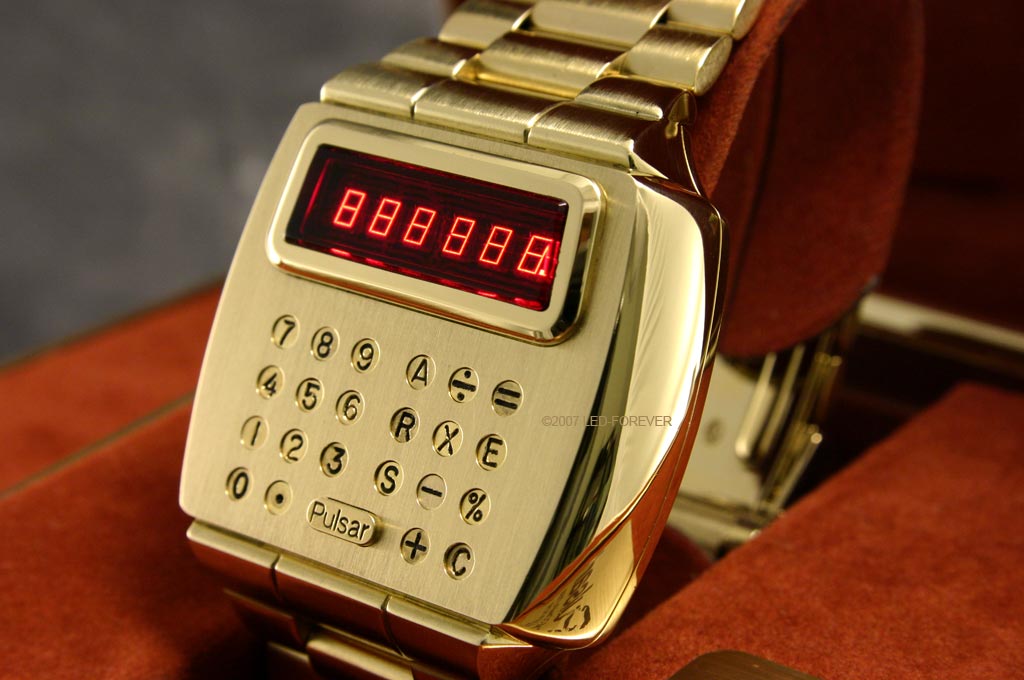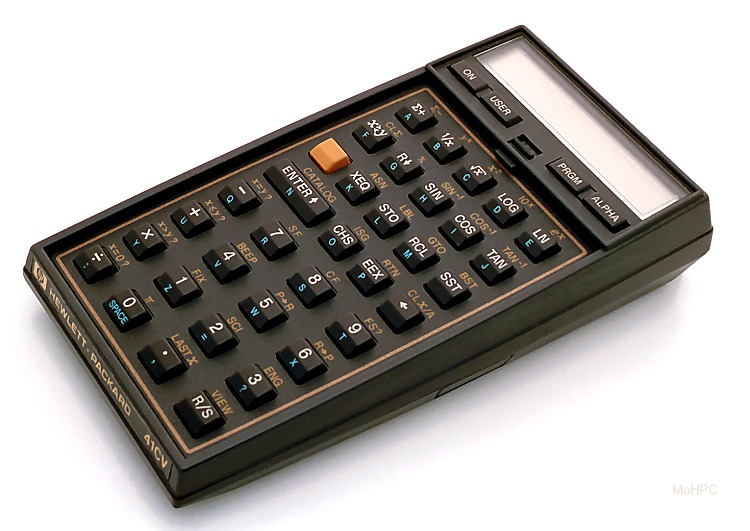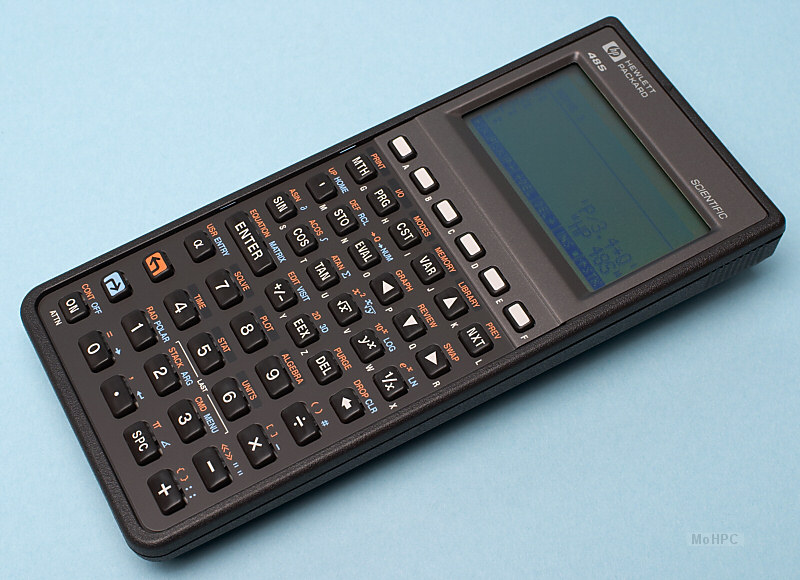So, smartphone makers have gone away from having keyboards on their phones (except for a couple of BlackBerry models), and most of those keyboards were mediocre, using overly stiff metal domes, keycaps spaced too closely (and sometimes too flat as well), often poorly thought-out layouts, and just not being good to type on. BlackBerry does well for what they've got, but it's still not ideal, the keycaps are still too closely spaced to comfortably type on, and the layout HAS to be extremely condensed.
That leaves bluetooth keyboards, and the situation there is... well... shit. It's so shit that people hoard decade-old scissor-stabilized boards! (No, really, have you looked at the price of a Stowaway (40% layout) lately? (Although, the Dell-branded ones seem to be cheaper.) And I don't even see any Stowaway Sierras (the older 65%) on eBay.)
Given what the community has done regarding building the Western market for mechanical desktop keyboards, including some crazy niche things, I'm honestly surprised that something good for mobile hasn't been done. It's not like suitable technology for a good mobile keyboard doesn't exist today - metal dome can actually provide quite a bit of tactility without excessive noise, and I'm using a metal dome board with hinged keycaps (a subtle thing that HP does on their calculator keyboards to add a bit more travel) to write this post (on an HP 200LX, to be specific). The layout is pretty bad, and it's a bit wide to use as a thumb board due to the numpad on the right side, but the key spacing is excellent for a thumb board, key force isn't excessive, and really, this could be done today.
For reference, here's what a 200LX looks like for those who aren't familiar, and it's worth noting that other than thickness and weight, it's about the size of a modern phablet:
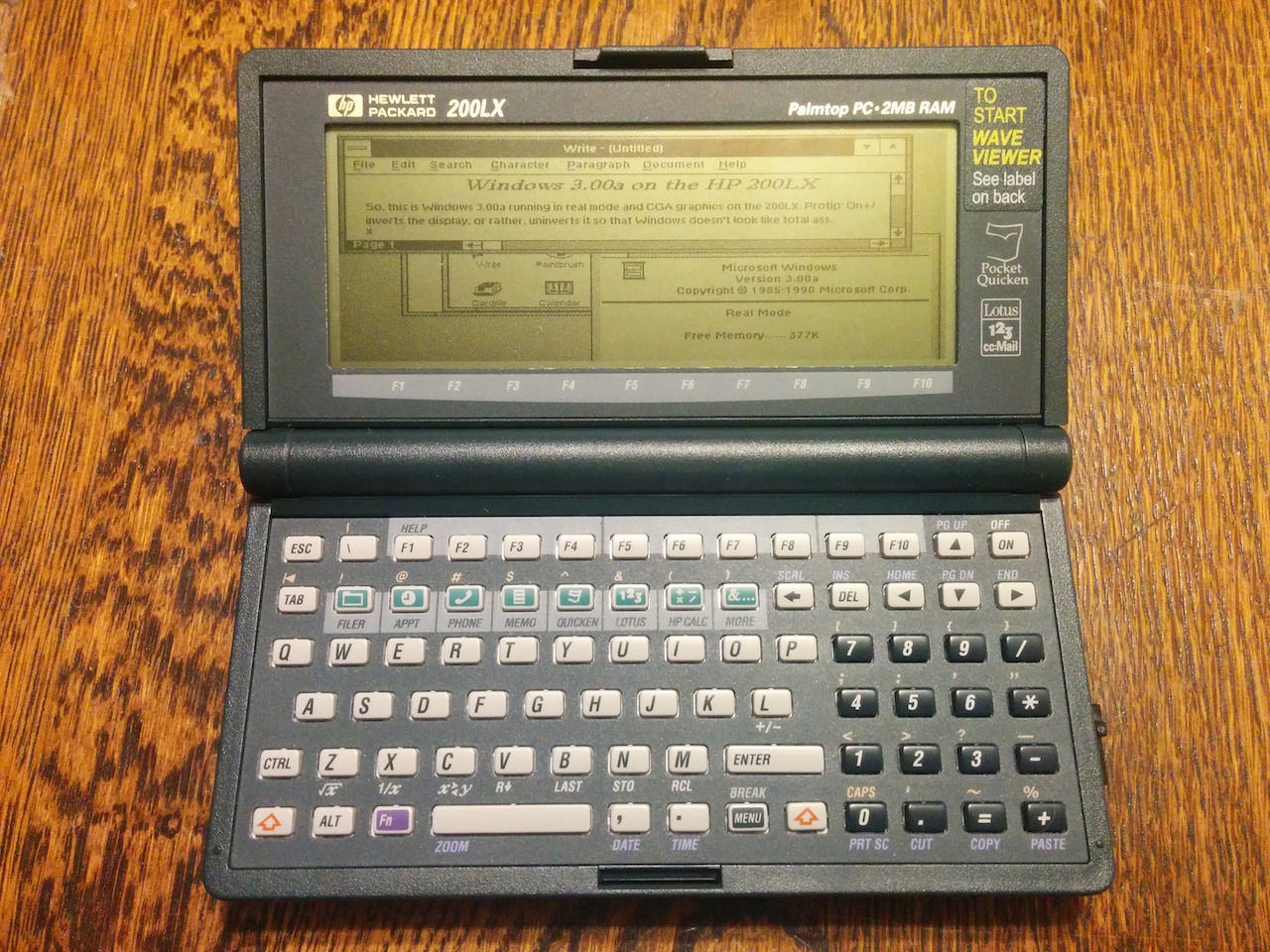
Also, the (wider) 300LX family (which ran Windows CE instead of MS-DOS 5.0) used a more conventional 60% layout (there's a couple differences, but it's not far off), with larger keys, I'm thinking of getting one just to compare the typing experiences (even though a Windows CE HPC is fairly useless, especially a 300LX or 320LX with CE 1.0, and the 320LX CE 2.0 upgrade is hard to find).
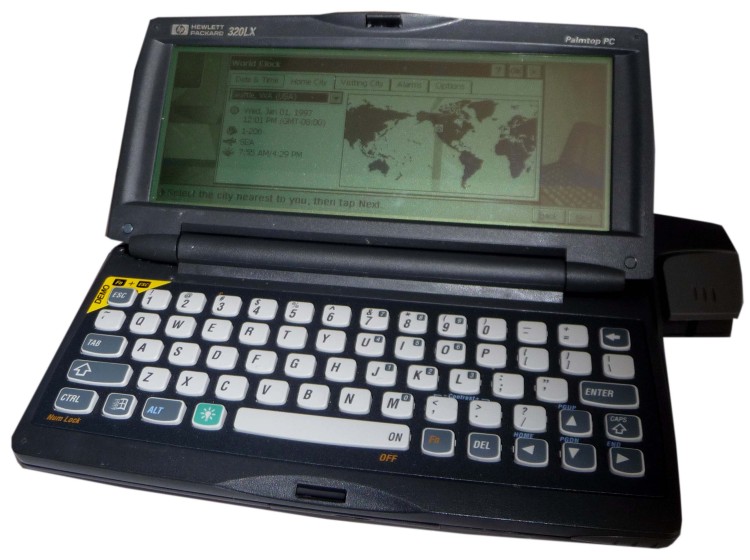
Really, why is every bluetooth pocketable keyboard at best a mediocre scissor-stabilized rubber dome board, and if they even have metal domes, they're excessively stiff and quickly fatiguing? Why can nobody make a good layout on such a keyboard? Why can't we, the community, make such a keyboard, for that matter? (I know, I know, tooling costs. But still...) I'd be quite happy with something like, say, a version of the 200LX keyboard that follows a 60% layout instead of HP's insane layout, as a thumb board.
